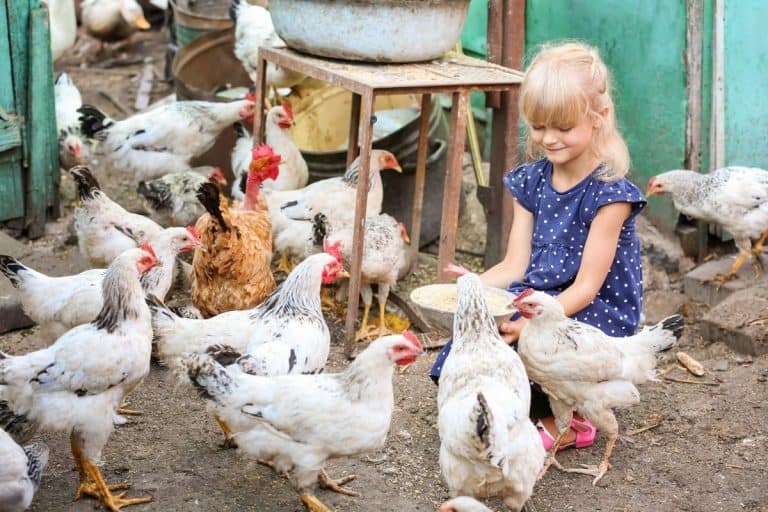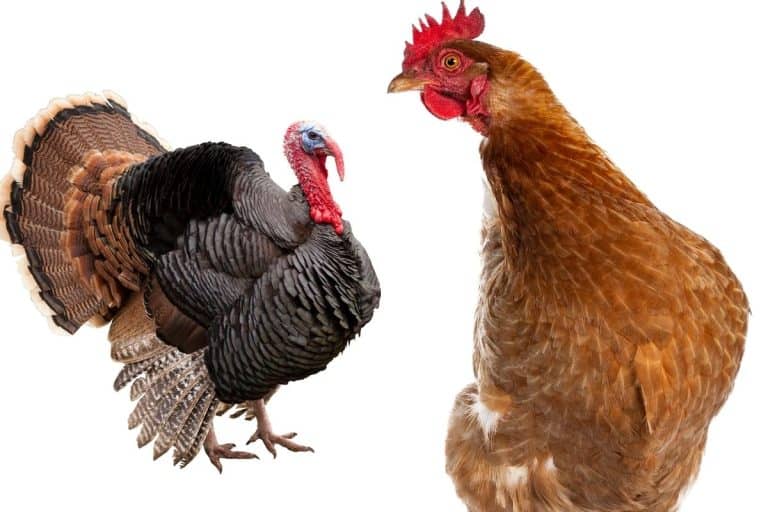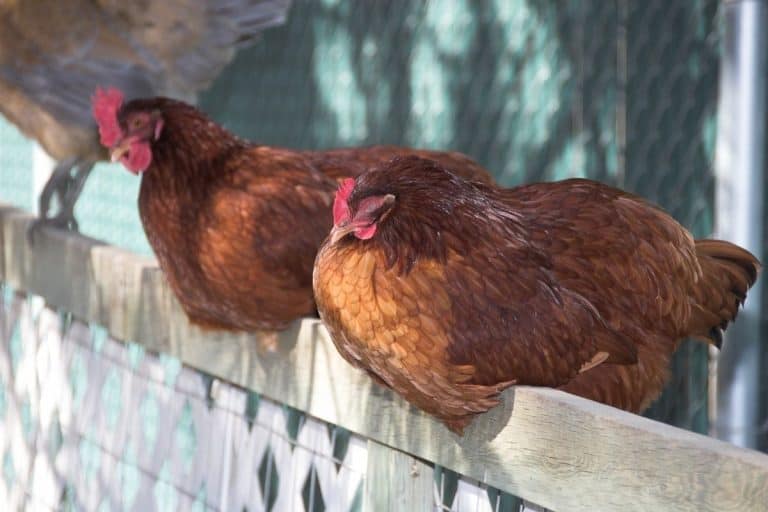Why Do Chickens Lay Eggs Every Day?
Questions regarding chickens and eggs are one of the things most people are curious about when it comes to this fun and feathery species of fowl. Something I had always wondered was why and how chickens lay an egg almost every day. Well, there’s a reason behind it, and I’ll tell you why!
A hen will lay about one egg a day until she has collected a clutch (usually around 10-12 eggs) to sit on, and will continue to do so until she meets that specific number of eggs.
Having hens that can produce an egg a day is great. However, it is important to keep an eye on your egg quality and feed your chickens a well-balanced and calcium-rich diet to ensure they stay in tip-top egg-laying shape! Keep scrolling to learn more about chickens and their miraculous egg production.
But before you dive into this topic, did you know I've got a page packed with my go-to chicken stuff? From the best feed to handy tools, it's all there. Don't you want the best for your flock? Check it out right here.
Why And How Do Chickens Lay Eggs Every Day?
Chickens lay eggs with the goal of having a clutch to sit on, meaning they will lay an egg almost daily until she accumulates her clutch, from there she will no longer lay any more eggs until they hatch.
We can thank a lot of selective breeding and the creation of hybrids for the purpose of high egg-laying numbers. Sometimes trying to force quantity can have an effect on quality, so ensuring that your hens are eating a well-balanced and calcium-rich diet is important for these frequent egg layers.
This does depend on the breed of chicken, but the average high-production, egg-laying hen will have about 5-6 eggs in one week. While that’s not exactly one a day, it is pretty dang close!
Laying Eggs Every Day: The HOW
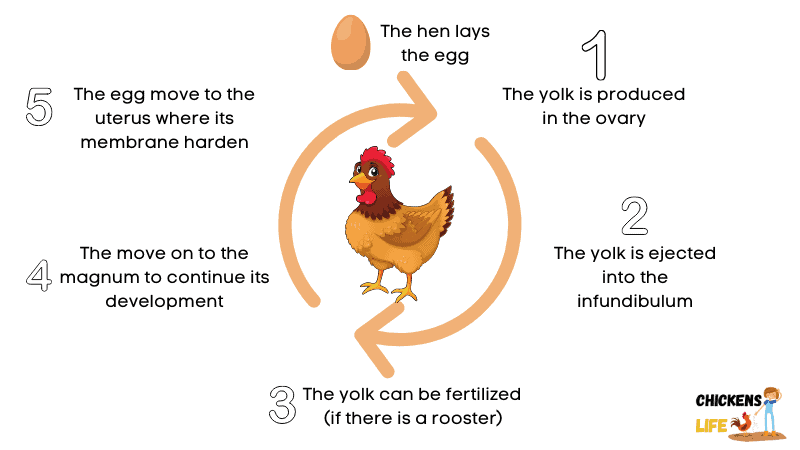
As far as HOW chickens can lay an egg a day is quite interesting and very fast. The process only takes 24 hours or less to form an egg, shell and all, and lay it. All that’s involved is a little bit of science and patience.
- First, the journey starts in the ovary (which, chickens only have one by the way, instead of the usual 2) where the yolk is formed and then passes into the oviduct.
- From there, the partially formed egg will hang out for about 15 minutes in the infundibulum, where fertilization may or may not occur (depending on if you have a rooster, of course).
- The egg white is then formed in the part of the canal called the Magnum.
- Finally, the egg makes its way to the isthmus, where in one one hour, the membrane is formed.
- After that, the egg travels into the uterus where the hard, outer shell is formed out of calcium.
If there is no shell, your chickens are probably lacking calcium in their diet (learn more about this).
Unlike many mammalian species, a chicken lays an egg with a hard protective shell outside of the body, where the baby must grow and hatch out in the open.
Wait, I have some recommendations for you!
Before you go any further, I want you to take a look at some of the recommendations I've handpicked for you. I think these are essential items you should have for your chickens flock. You can check them out and buy them directly from Amazon.
 |  | 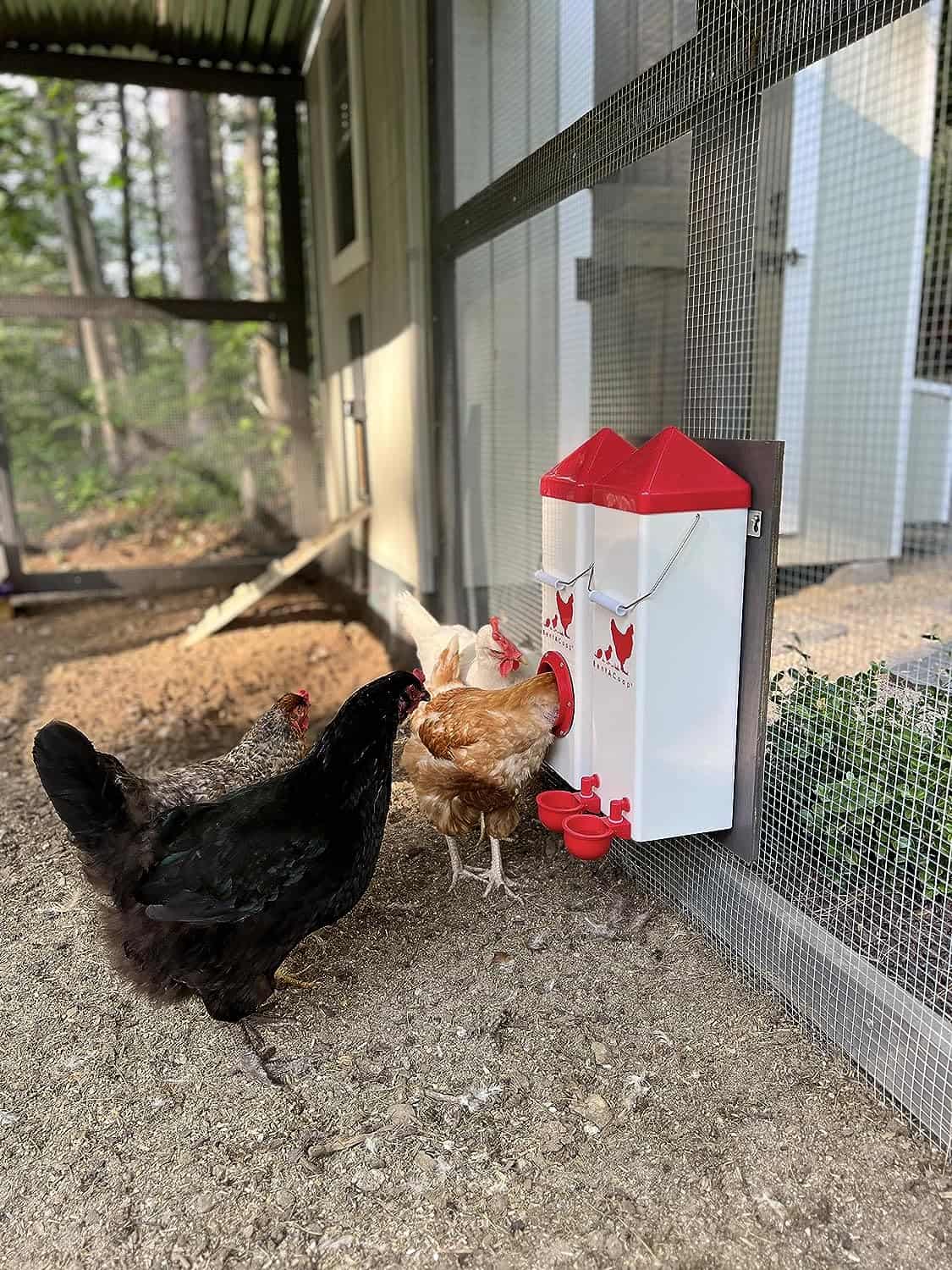 |  |
| Essential accessory for your coop | No more tripping over hoses! | Predator protection made easy | Comfort + style is possible |
How Often Do Chickens Lay Eggs Naturally?
If a chicken were just out in the wild, fending for themselves and trying to survive, they would only produce about 1 or 2 eggs a week. This is due to resource issues, stress and the difficulty of keeping eggs away from predators while they’re out foraging.
Now, if you’re just wanting to know how many eggs your Rhode Island Red or Buff Orpington is going to lay on their own, the answer is probably going to be about 5 or 6 a week. This is assuming that the seasons have normal daylight hours, and you aren’t having to provide any supplemental light for them to continue laying over the winter months.
Many of the chickens that have been bred with the specific purpose of being egg layers are going to produce close to 5 eggs a week minimum. Science and selective breeding are the reason for this, and we can sometimes see issues with soft or under formed eggshells when chickens are forced to lay more eggs than their bodies can keep up with.
How Do Chickens Lay Eggs Every Day Without A Rooster?
Chickens can lay an egg every day without needing a rooster. This is because the egg will be formed regardless of fertilization done by a male. As a matter of fact, nearly every egg that you have purchased from a store or eaten was an unfertilized egg!
This specific and unique trait by birds is truly fascinating. The ability to still lay an egg even without the fertilization of a male is a pretty neat trick because at the end of the day, all a chicken needs to produce an egg is several hours of light.
No, they don’t form eggs via photosynthesis. The creation of an egg is a natural process that they can perform without needing fertilization, however, if you want viable eggs that can be hatched into chicks, you will need a rooster around.
Why Do Chickens Lay Eggs Every Day And Other Birds Don’t?
Chickens are a unique species that can lay a large number of eggs for a clutch. We need to remember that they were bred for this sole purpose. We can assume that their first wild chicken ancestor, the Red Jungle Fowl, probably didn’t produce 5 or 6 eggs a week.
When we started the domestication and regular raising and eating of chickens, we also began the process of creating high-production egg layers. Humans started combining chickens with others that were laying the number of eggs that we desired, therefore streamlining the genetic takeover that would be massive, future egg-layers.

Other birds differ from chickens because we haven’t bred and used them for the purpose of egg-laying. When a farmer takes a chicken’s fresh egg every morning, they are ensuring that she will not accumulate a clutch, keeping her laying more eggs.
With other birds, they are also looking for a clutch to sit on and incubate, however, that number of eggs varies depending on the species. For instance, some birds only have 1 egg, while others have 3 or even 4 or 5 times that many. Chickens and ducks actually have the largest clutches of all the birds! Chickens usually lay about 12 eggs and ducks can lay about 15 (find out all the differences between chickens and ducks in this article!).
What Things Can Affect How Many Eggs A Chicken Lays?
Chickens are a delicate species that can be easily stressed and affected by their environment, eventually leading to a decrease in the number of that they produce. Some of the biggest factors that can have a direct effect on egg-laying rate are age, stress, daylight, breed and nutrition.
If you have noticed a drop in the number of eggs your chickens are laying for you, try investigating the flock to see if you can identify the cause.
Age Of Your Chicken
Just like most species of animal or bird, there is a prime age for reproduction. For chickens, this is usually between 20-78 weeks of age. It is very common for chickens to continue to lay eggs after this “prime time” but you will certainly notice they are producing less than they were before.
Stress On The Farm
If you have a single chicken or even an entire flock that has suddenly started acting strangely, then you may want to look into what is stressing them out. It is likely that there is a noise, predator, or some other super scary item (could even be a lawnmower; they are chickens after all) that has them on edge, reducing the number of eggs that they lay for you.
Daylight Hours And Seasons
The colder seasons and diminishing daylight hours will often put a strain on the number of eggs that your chickens will lay for you. This is because they require about 16 hours of light in order to continue laying consistently throughout the winter. Anytime that daylight drops to 12 hours or less, you will notice a decrease in egg production.
Breed Of Your Chickens
The breed of the chicken plays a huge factor in how many eggs they will lay (more details here). Several breeds have been created with the sole purpose of producing high numbers of eggs consistently. That is where we get our breeds like the Rhode Island Red, Leghorn, Buff Orpington and hybrids like the Golden Comet.
Your Chicken’s Overall Nutrition
Nutrition is extremely important when it comes to your chickens and their egg production. Because these busy ladies produce so many eggs a year, it is crucial that they are constantly being fed a nutritionally complete diet that will make up for what they have lost. Even if your chicken still lays an egg daily, if they are not fed a balanced diet, you will notice soft-shelled and unhealthy eggs.
Related: How Many Times A Day Should I Feed My Chickens?
Why Can Chickens Lay An Egg A Day?
Most chickens can produce about one egg every 24-30 hours, meaning you should have about 5 or 6 eggs a week, on average. These birds are able to do so because of hundreds of years of selective breeding to obtain high egg-producing chickens.
But, the main reason that they keep laying eggs is simple: they want a clutch to sit on. If they don’t have it, they will continue to make eggs until she has close to a dozen or so to satisfy her broody instincts.


